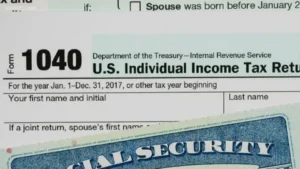When planning for retirement, understanding how state taxes will impact your income is crucial. While federal taxes are more or less uniform across the U.S., state income taxes vary significantly. Some states have no income tax at all, which can be a major factor when deciding where to live after retirement. Below is an overview of the states that do or do not tax various types of retirement income.
States With No Income Tax
Eight states do not impose a personal income tax, meaning no state income tax on retirement income:

- Alaska
- Florida
- Nevada
- South Dakota
- Tennessee
- Texas
- Washington
- Wyoming
In New Hampshire, interest and dividends over $2,400 are taxed, but this will be repealed starting January 1, 2025.
States That Do Not Tax Social Security Benefits
39 states, including those with no income tax, do not tax Social Security benefits:
- Alabama
- Alaska
- Arizona
- Arkansas
- California
- Delaware
- Florida
- Georgia
- Hawaii
- Idaho
- Illinois
- Indiana
- Iowa
- Kentucky
- Louisiana
- Maine
- Maryland
- Massachusetts
- Mississippi
- Missouri
- Nevada
- New Hampshire
- New Jersey
- New York
- North Carolina
- Ohio
- Oklahoma
- Oregon
- Pennsylvania
- Rhode Island
- South Carolina
- South Dakota
- Tennessee
- Texas
- Vermont
- Virginia
- Washington
- Wisconsin
- Wyoming
Note: In some states, like Iowa, Social Security income is not taxed but may still be factored into filing status and eligibility for other deductions.

States That Do Not Tax Pension Income
17 states do not tax pension income (including both defined benefit plans and government pensions):
- Alabama
- Alaska
- Florida
- Hawaii
- Illinois
- Iowa
- Mississippi
- Nevada
- New Hampshire
- Pennsylvania
- Rhode Island
- South Dakota
- Tennessee
- Texas
- Vermont
- Washington
- Wyoming
States That Do Not Tax Thrift Savings Plan (TSP) Income
If you’re receiving distributions from a Thrift Savings Plan (TSP), 12 states do not tax this income:
- Alaska
- Florida
- Illinois
- Mississippi
- Nevada
- New Hampshire
- Pennsylvania
- South Dakota
- Tennessee
- Texas
- Washington
- Wyoming
States That Do Not Tax 401(k) or IRA Income
12 states do not tax distributions from your 401(k) or IRA:
- Alaska
- Florida
- Illinois
- Mississippi
- Nevada
- New Hampshire
- Pennsylvania
- South Dakota
- Tennessee
- Texas
- Washington
- Wyoming
States That Do Not Tax Military Retirement Income
33 states do not tax military retirement income:
- Alabama
- Alaska
- Arkansas
- Connecticut
- Florida
- Hawaii
- Illinois
- Iowa
- Kansas
- Louisiana
- Maine
- Massachusetts
- Michigan
- Minnesota
- Mississippi
- Missouri
- Nevada
- New Hampshire
- New Jersey
- New York
- North Dakota
- Ohio
- Pennsylvania
- Rhode Island
- South Dakota
- Tennessee
- Texas
- Utah
- Vermont
- Washington
- West Virginia
- Wisconsin
- Wyoming
States That Do Not Tax Estate or Inheritance
38 states do not impose estate or inheritance taxes, including:
- Alaska
- Arizona
- Arkansas
- California
- Colorado
- Delaware
- Florida
- Georgia
- Idaho
- Indiana
- Iowa
- Kansas
- Kentucky
- Louisiana
- Maryland
- Missouri
- Montana
- Nebraska
- Nevada
- New Hampshire
- New Jersey
- New Mexico
- New York
- North Carolina
- North Dakota
- Ohio
- Oklahoma
- Pennsylvania
- South Carolina
- South Dakota
- Tennessee
- Texas
- Utah
- Virginia
- Washington
- West Virginia
- Wisconsin
- Wyoming
Taxation of 401(k)s, IRAs, and Pensions
In Alabama, Hawaii, and New Hampshire, pensions are not taxed, but 401(k) distributions and IRA distributions are taxed. So, it’s important to note that certain retirement savings plans may still be taxable depending on the state.
What Should You Consider?
While taxes are an important factor in deciding where to retire, they should not be the only consideration. For example, even if a state does not tax retirement income, you must factor in other factors such as the cost of living, housing costs, and climate. States with no income tax may have higher property taxes or sales taxes. Similarly, some states offer special tax breaks for retirees in specific types of retirement income (e.g., pensions, TSP).
Before making a decision, it’s wise to consult a financial advisor and evaluate all the tax and non-tax factors that will impact your retirement. Also, keep in mind that tax laws can change, so always check the latest information from the state tax authority before finalizing any relocation plans.

